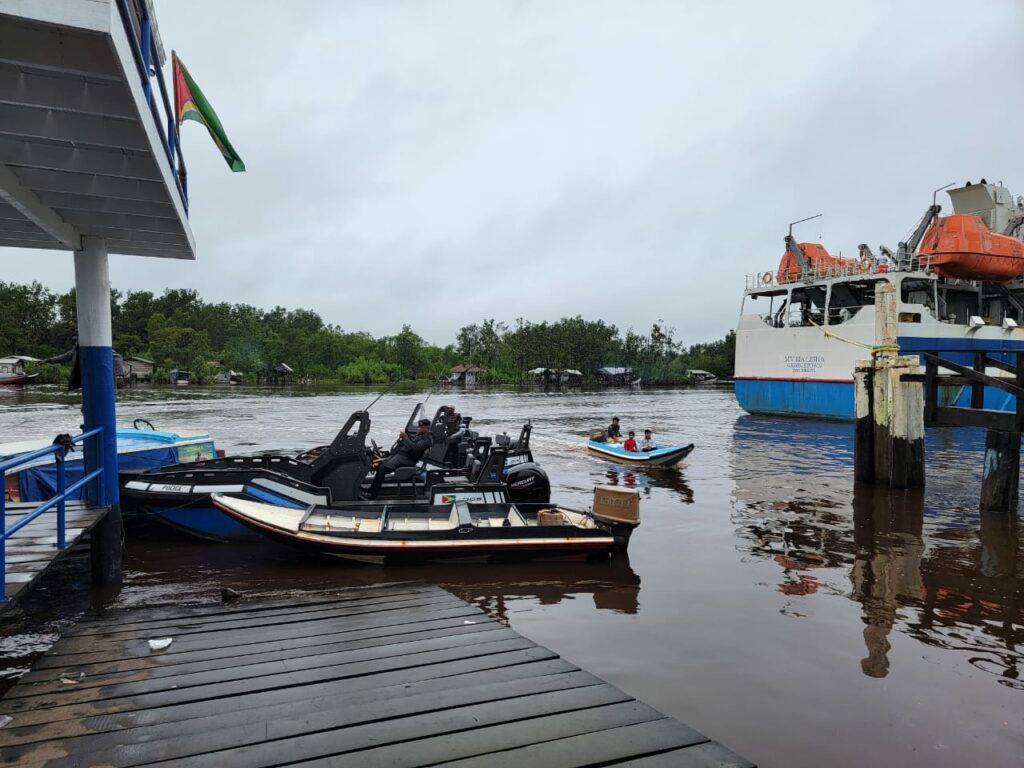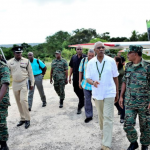
Director of the Centre for International and Border Studies, Dr Mark Kirton is of the opinion that an international military mission should be among key plans on the agenda for Guyana amid increasing acts of aggression and provocation from its neighbour to west, Venezuela.
Diplomacy has always been Guyana’s first line of defence to the threat to its sovereignty and territorial integrity, but Dr Kirton, while embracing this approach, said even as the territorial controversy remains before the International Court of Justice (ICJ) for final adjudication, Guyana should have an international military mission on standby.
“We should have already had some kind of military mission, hemispheric, a deterrence mission. Because our capacity militarily is known but I believe that we could have broadened Regional Security System, the RSS, to include Trinidad and Jamaica, which have substantial military forces, along with a broadened hemispheric grouping United States, Brazil, maybe some others under the aegis of the United Nations,” he told News Sources.
In the past five months, there has been an incursion into Guyana’s waters by a Venezuelan naval vessel, and four attacks on Guyanese soldiers in the Cuyuni River.
Guyana has continued to make its case before the International Court of Justice, even as the Venezuelan Government continues to dismiss the Court’s jurisdiction.

Dr Kirton, while convinced that the ICJ will rule in Guyana’s favour, said given the stance taken by Venezuela, there may very be an issue of compliance on the part of the Spanish-speaking country, whenever the UN Court hands down its decision in the substantive case.
He said it is therefore important for Guyana to adopt a multifaceted approach, in which there is “sustained” interaction with both the local community, and the country’s international and potential allies, including its multilateral partners, on Guyana’s position.
A “whole of country” approach is needed, he emphasized.
“I believe that one recommendation could be that they should have a core of special envoys established, not necessarily only from the Ministry of Foreign Affairs but from other places that could go to capitals with a mandate to present Guyana’s position not only on the short term issue of elections, and so on by Venezuela in a territory that was never owned or occupied by them but also in the position down the road. We have to ensure that whatever is the outcome, and I think the outcome would be in Guyana’s favor, that the issue of compliance is understood,” he said.
Dr Kirton also made a case for greater emphasis on education. He said facts on the controversy should be included in the school’s curriculum from nursery to university.
“The issue of borders should be added to the curriculum in schools, and in university. You know, in Venezuela, from nursery to university there is that particular argument about the rightness of their claim to Guyana and I don’t think that we’ve consistently had that kind of educational process unfolding in Guyana,” he said.
Further he said that a unit comprising government and non-government organizations, and key stakeholders should be established to conduct day-to-day analysis on the controversy, and influence policy decision.
It was also suggested that Guyanese including local investors be given incentives to develop industries and other businesses within border communities.













You must be logged in to post a comment Login